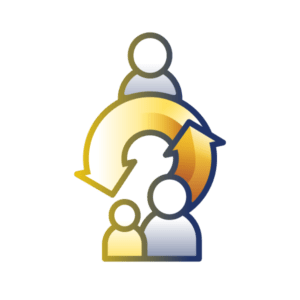Cal Farley’s uses a therapeutic intervention called neurofeedback to help residents with attentional issues (things like concentration or focus) and emotional self-regulation. It even can promote better sleep.
For Alex, who’s been participating in neurofeedback sessions for some time, the intervention helps her bring calm and focus to many areas of her life.
“I’m doing really (well) in neurofeedback,” she said. “If I see myself getting too excited, too rowdy, I just have to stop what I’m doing. I have to breathe and talk slower.”
It’s exactly this kind of awareness and self-regulation that Cal Farley’s neurofeedback encourages in our residents.
“Neurofeedback is a sophisticated form of bio feedback that actually trains the brain to normalize brain waves and make them flexible and adaptable to situational needs,” explained Shanna Tipton, Cal Farley’s neurofeedback specialist.
Tipton said working with residents to help them train themselves to be aware and in control over their moods, emotions and even brain wave patterns, can have a better long-term result than relying on medication.
“(Neurofeedback) can do more on a permanent basis what most medications can only do for a few hours,” she said, “and there are no negative side effects.”
Alex said her biweekly neurofeedback sessions aren’t only helpful, they’re fun, too.
As Alex watches a short segment from a movie she’s chosen or completes a specific task in a video game, sensors placed on the center of her head track the electrical activity of her brain and, if her focus wanders, shuts down the activity.
Tipton explained neurofeedback’s purpose is to train the brain to focus and respond appropriately to a given situation or stimulus. Think of it like the transmission in your car: You shift up to go faster and you shift down to go slower or stop.
If your car is revving up while it’s in park, there is an issue to address.
“When we go to sleep at night, our brain shifts down to use slower brain waves for sleep,” Tipton said. “When we are learning in the classroom, our brain should shift up and use a faster brain wave to allow for concentration and learning.”
Whatever the science, Alex knows the neurofeedback she receives at Cal Farley’s is helping her improve her focus and retention in school, at home and even when she’s just playing with her friends.
“It helps to naturally tell your brain to calm down,” she said.













